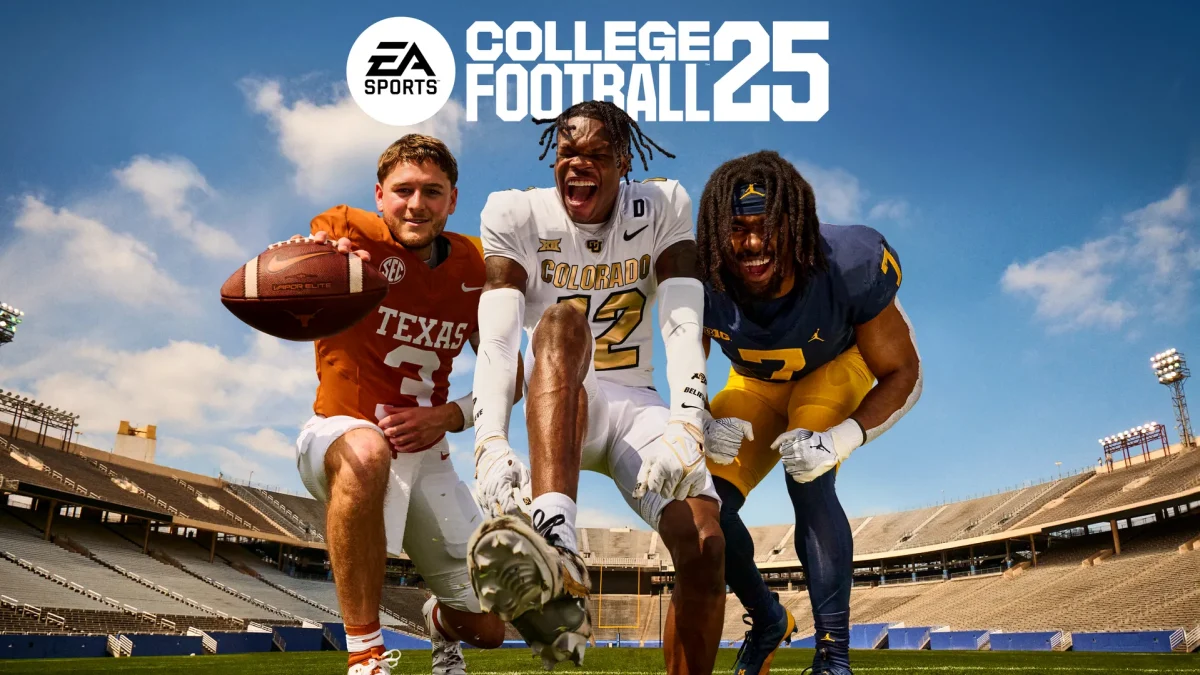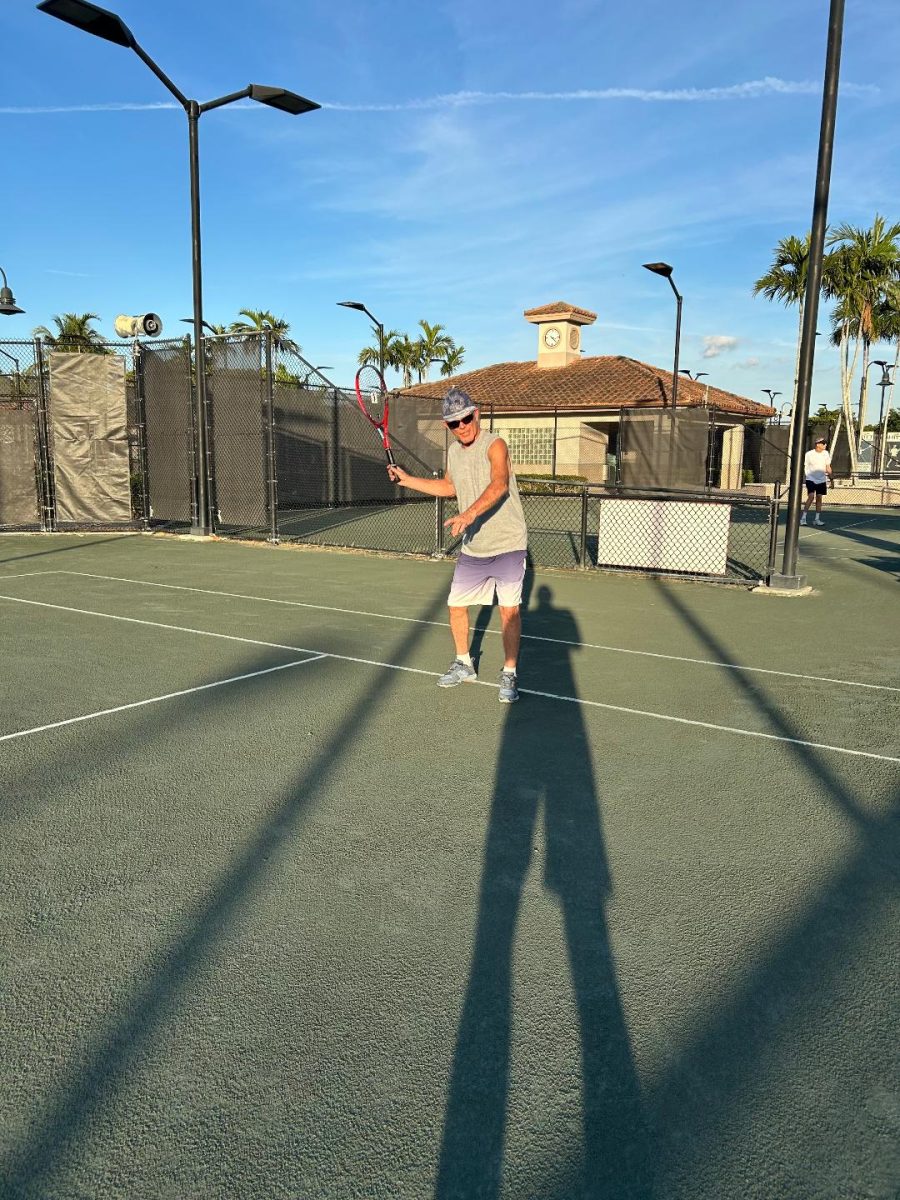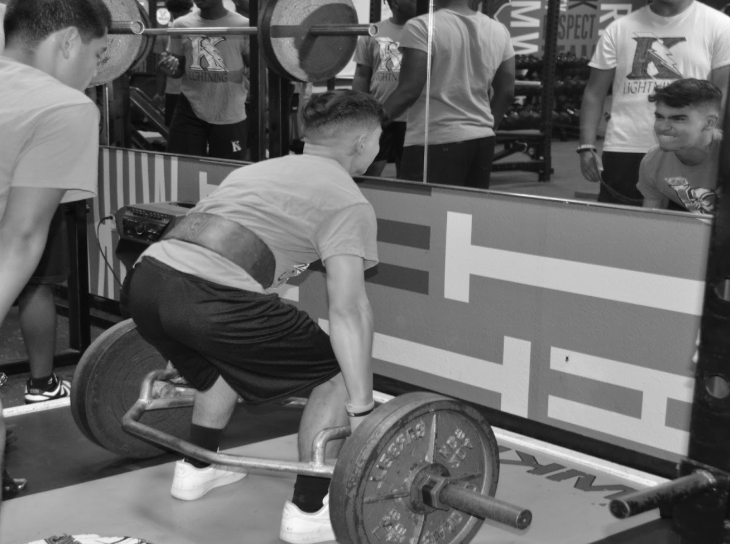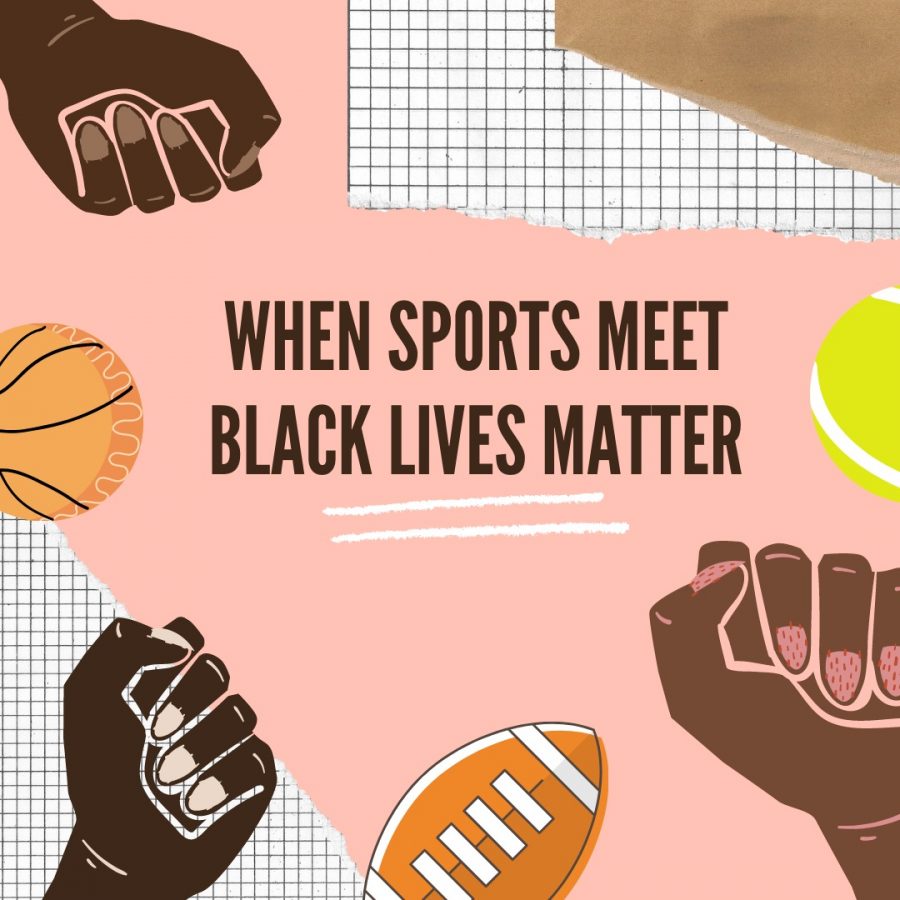Black Lives Matter scores again
The #BlackLivesMatter movement has seen a resurgence in 2020 after George Floyd, a 46-year-old unarmed black man, was killed by a Minneapolis police officer. Immediately afterwards, protests and riots formed all over the country by people wanting to make their voices heard. Athletes, as well as organizations in the sports industry, have made choices and gestures to show their support for the movement.
When the NBA resumed play after shutting down from Covid-19, players were given the option to place phrases on the back of their jerseys in support of the cause. The league approved 29 phrases including “Say their names,” “Enough” and “How many more?”
Days after Jacob Blake — a black man who was shot and brutally injured by the Wisconsin police department on Aug. 23 — was hospitalized, his hometown team, the Milwaukee Bucks boycotted a first round game against opponents Orlando Magic. This was the first of six postponed games, and after talk of canceling the rest of the season, action resumed on Aug. 29.
Later into the playoffs, after scoring 50 points during a must-win game six in the midst of a historic playoff comeback, the only thing Denver Nuggets’ guard Jamal Murray could talk about in his emotional postgame interview were his shoes. On his shoes were illustrated pictures of Floyd and Breonna Taylor, another victim of police brutality.
“These shoes give me life. Even though these people are gone, they give me life. They help me find strength to keep fighting this world,” Murray said. “That’s what I’m going to keep doing.”
The NBA was not the only sports league that had player protests. In the NFL, week one of the regular season consisted of players from 31 out of the 32 teams protesting in some way. This ranged from athletes staying in the locker rooms to kneeling or raising their fists as the national anthem played before the start of their games.
Professional tennis player Naomi Osaka had her own way of protesting. Entering the 2020 Women’s Singles U.S. Open, Osaka brought with her seven face masks all portraying a name of a different black life lost as a result of police brutality or other forms of racial injustice. With seven possible matches, her plan was to wear a different mask before every one, and she was able to do that as she wore one right up to the finals.
In her postgame interview after winning the tournament, Osaka was asked what message she wanted to share by wearing the masks. She responded, “What was the message that you got? The point is to make people start talking.”
While many athletes and organizations have recently shown their support towards the movement, this is nothing new. With more than 70 percent of both the NBA and NFL being African American as of 2018, we have seen multiple forms of personal and joined protests by athletes throughout.
In 2014, several NBA players and other U.S. athletes wore pre-game shirts with the words “I can’t breathe” on them, the last words of police brutality victim Eric Garner. Chicago Bulls point guard Derrick Rose was the first to do so, and many other star athletes including LeBron James, Kobe Bryant and their teams quickly followed suit and joined the cause, wearing the same shirts in order to make their voices heard.
Entering the 2016 NFL preseason, San Francisco quarterback Colin Kaepernick took a form of protest by refusing to rise for the national anthem in order to spread a message about police brutality and social injustice. At first, many people, including former U.S. Army Special Forces member Nate Boyer, viewed the protests as disrespectful towards the military, flag and nation as a whole as he sat on the bench while the anthem played.
In response, Boyer wrote an open letter to Kaepernick saying that he was trying to listen and understand his message. Only a few hours later, Kaepernick reached out to Boyer and wanted to meet in person. Boyer explained to Kaepernick that taking a knee is something people do to pray, propose or honor the fallen, and to do this alongside teammates instead of sitting on the bench would be a step in the right direction. In the first week of the regular season, Kaepernick and 11 other players took a knee.
For the longest time, athletes have used their followers and platforms to voice their opinions on topics like politics, education reforms and other social issues, but athletes such as Kaepernick, Murray and Osaka have used the opportunity to get people to start talking about something larger than themselves
“I think it’s important that these athletes share their opinion,” senior athlete Amaar Maniar said. “With an already huge platform, people from all over — not just their teams’ city or state — will listen and take action.”































Natan Ackenine • Oct 27, 2020 at 10:56 am
Ryan Curtis for president ?
? ?
? ?
? ?
?